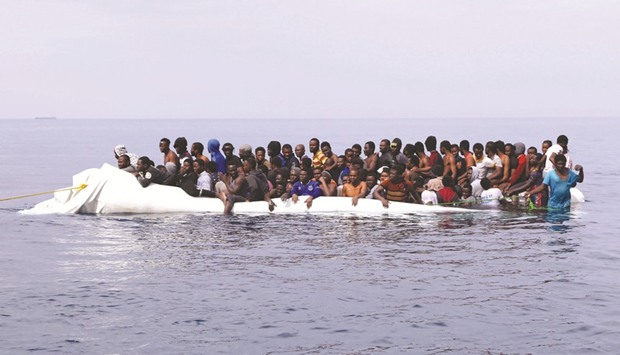An Italian prosecutor leading an investigation on links between Libyan migrant traffickers and non-governmental organisations (NGOs) who carry out sea rescues said yesterday that he had proof of their collusion, but was not sure evidence would stand up in court.
Catania Chief Prosecutor Carmelo Zuccaro told La Stampa daily that the charge does not apply to big charities like Doctors Without Borders (MSF) or Save the Children, while “things are different for others, like Malta’s MOAS or the German (NGOs), which are in the majority”.
“We have evidence that there are direct contacts between some NGOs and human traffickers in Libya. We do not yet know if and how to use this information in a trial, but we are quite sure of what we are saying,” Zuccaro said.
He said that “some NGOs” take calls from Libya, that lights go on to guide migrant boats towards NGO rescue ships, and that some NGOs sometimes turn off their radio transmitters, presumably to hide their trespassing into Libyan territorial waters.
“These are proven facts,” Zuccaro said.
There are at least 10 NGOs rescuing migrants in the central Mediterranean, including Jugend Rettet, Sea Watch, Sea-Eye, LifeBoat, SOS Mediterranee and Mission Lifeline from Germany, and Proactiva Open Arms from Spain.
“LifeBoat strongly rejects any accusation of having contacts to any persons or organisations involved in the Libyan people smuggling and trafficking ‘business’,” the organisation told DPA in a written statement.
“There are no phone calls made or received to or from Libyan smugglers [...] Proof can easily be given by reading out all connection data of the ship’s satellite telephone,” the charity added, also describing donation-based budget as fully transparent.
Jugend Rettet also dismissed the charges, and criticised the prosecutor for formulating them via the media, rather than official channels.
“It is really an interesting way of communication,” a spokeswoman who only gave her first name, Isabel, told DPA via telephone.
She said it was particularly galling to be put on the spot after the dramatic Easter weekend rescues, in which more than 8,000 migrants were picked up in total and Jugend Rettet’s boat was so overwhelmed that it had to launch a May Day request for help.
The EU border agency Frontex was among the first to publicly accuse the NGOs of collusion with migrant traffickers, and an Italian parliamentary committee is conducting hearings into the matter.
Italian opposition parties have also jumped on the issue.
A February Frontex report stated: “Apparently, all parties involved in (rescue) operations in the Central Mediterranean unintentionally help criminals achieve their objectives at minimum cost, strengthen their business model by increasing the chances of success.”
Marco Bertotto of MSF Italy told La Repubblica on Saturday that NGOs would continue operating in the Mediterranean until Europe opens safe, legal channels of migration.
“What is the alternative? Are they telling us that it is better to let people die at sea?” he asked.
According to official Italian data, nearly 37,000 migrants have landed in the year to date, a 44% increase from the same period of 2016.
Meanwhile, Mediterranean migrant deaths have fallen from 1,263 to 962, the International Organisation for Migration (IOM) says.

This file photo taken on March 20 shows migrants waiting to be rescued from a sinking dinghy off the Libyan coastal town of Zawiyah, as they attempted to cross from the Mediterranean to Europe. An Italian prosecutor has claimed that charity boats rescuing migrants in the Mediterranean are in direct contact with people traffickers in Libya, tantamount to providing a ‘taxi’ service to Europe.
